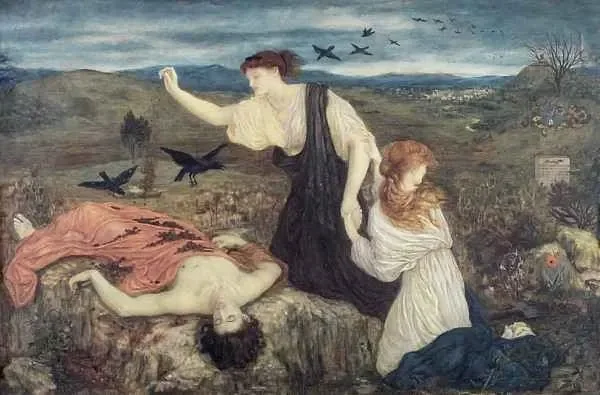The Chorus Reflects
“They’re certainly not taking you away,
Hauling you off in thoughtlessness
On the premise that you disobeyed
A royal decree, are they?”
Art: Marie Spartali Stillman (1844-1927), Antigone
As soon as Antigone defies Creon’s order that Polynices’ body is to remain unburied, the Chorus of Theban Elders reflects on the destructive nature of power. They sing about how the human race is terrifying, because it’s capable of both great achievements and equally great destruction.
The Chorus revisits the arrogance of the two brothers, Eteocles and Polynices, who set this tragic downward spiral in motion. Their mutual hatred resulted in their violent deaths, and the gods’ wrath.
They affirm the gods’ punishment in response to the brothers’ pride. They even acknowledge the force of the laws of the land that now must be upheld… and yet, they also cannot ignore the very real tension between divine justice and Creon’s human law.
Already, here, they hint at the consequences that come from defying the will of the gods. There’s a lengthy tradition of examples of those who have defied them.
In this Stasimon (= the choral reflection that reflects on the actions of the drama), the Chorus makes clear the stakes at play in the larger moral dilemma that’s about to unfold. As they wrestle with the concept of Justice and the undesirable consequences of human pride, we sense that Antigone’s actions will set in motion a chain of action and reaction of enduring consequence.
-
Read Sophocles’ Antigone.
